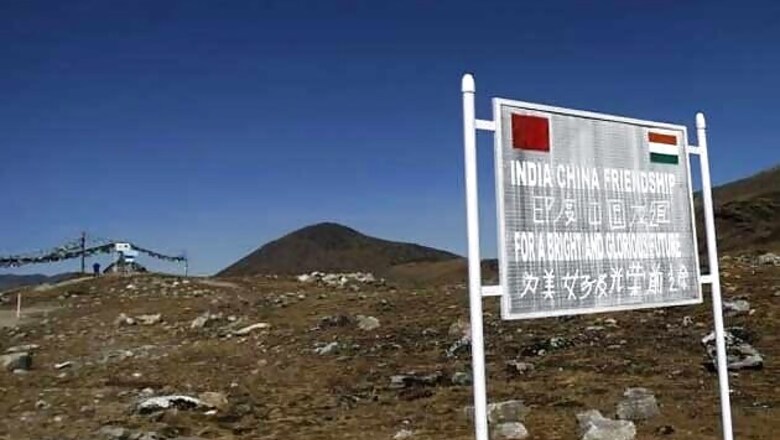
views
Beijing: Ahead of Prime Minister Narendra Modi's visit here on May, the Chinese military on Thursday gave a guarded response in dispelling apprehensions of yet another military standoff at the LAC saying that it "strictly abides" by agreements to maintain peace and stability on the border.
"Chinese border troops have always strictly abided by the agreements reached by the two governments and are committed to peace and stability along the border area," defence ministry spokesman Geng Yansheng said at a media briefing here.
He was replying to questions about apprehensions of standoffs at the Line of Actual Control (LAC) during Modi's tour similar to the incidents which overshadowed the visits to India by Chinese Premier Li Keqiang in 2013 and President Xi Jinping last September.
"To maintain peace and stability in the China-India border is a common interest of both the countries and it is also the common aspiration of the people of two countries," Geng said.
"Through the meeting mechanisms of the border defence troops, the officers and soldiers on both sides of the borders have conducted coordination and consultation with each other and we are willing to work together with the Indian side to strengthen cooperation in various fields and push forward for new relations of the two countries," he said.
Modi is expected to arrive on his first visit to China from May 14-16. A face-off at Depsang in Ladakh with Chinese troops pitching tents ahead of Li's trip cast a shadow on the visit.
Li undertook his first visit abroad to New Delhi after taking over office to send a strong signal about the importance his new government attached to India. The issue was resolved after tense negotiations before his arrival.
Xi's visit to India last year aimed at resetting ties after Modi's election, was overshadowed by presence of Chinese troops at Chumar in the Ladakh region which was resolved amicably days after his trip.
Chinese military earlier defended the moves saying that such incidents took place due to different perceptions over the along the over 4,000-km LAC. The border issue and the progress made so far in the 18 rounds of Special Representatives' talks is expected to figure in Modi's talks with Xi during his visit.
On the boundary issue and demarcation of LAC advocated by Modi during his talks with Xi last year, Geng said that the dispute is a legacy left over from history and both the governments are holding talks to resolve it.
"Before the final settlement of the boundary issue, the important consensus reached by both sides is that we should join hands to maintain peace and stability along the China-India border. We hope the Indian side can meet China halfway," he said.
Referring to the fifth Strategic Defence Dialogue held between top officials of the two countries here on April 10, Geng said the the consensus that came out of the meeting was that such a dialogue mechanism was very important for mutual trust and cooperation of the two countries and two militaries.
"In principle both sides agreed that exchange and cooperation between the two navies and air forces will be strengthened," he said.
Currently, most of the exchanges including the annual military exchanges are confined to the two armies.
Officials said efforts are on by both sides to extend similar exchanges between the navies and air forces.
Geng said this year the two militaries will have lot of important exchanges and cooperation. Senior leaders of the two militaries will also exchange visits. There will be meetings and dialogues between the two sides to ensure peace and tranquillity along the borders, he said.
Asked about the proposed visit of Indian Army's Northern Area Commander to China, to which Beijing had objected in the past saying that he represented troops in a disputed area in Kashmir, Geng said,
"China has a consistent and clear stand on the issue of Kashmir. The specific visits of the border defence troops between the two sides are still in discussion".
China surprised India in 2010 by issuing stapled visas to residents of Jammu and Kashmir even though it never publicly acknowledged it.
Beijing's attempts to issue such visas to the then Northern Area Commander prompted India to discontinue all military exchanges.
China later rolled back the move in 2011 by issuing regular visas to J&K residents which led India to resume defence ties.
India is reportedly keen that its Northern Army Commander visit China with a regular visa to ensure that there are no misunderstandings on the issue.




















Comments
0 comment